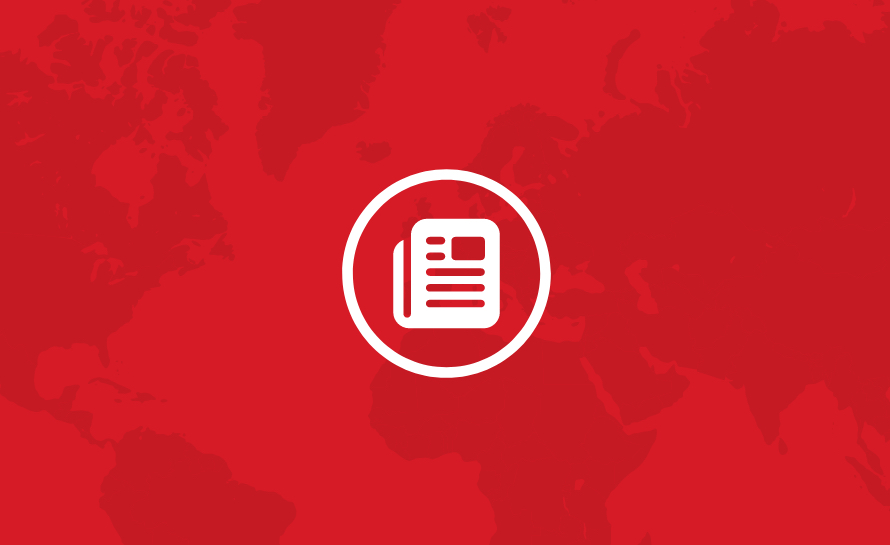Zainab A. Dakhil and Israa F. Yaseen
For us, as health care professionals from an emerging country, one of the greatest barriers facing our suggested projects and ideas is the unheard voice that frequently returns as echo. However, we finally found a huge opportunity in the WHF Emerging Leaders Program. This program offered us the listening ear, the feeling heart, and the receiving mind. In so many emerging countries like Iraq, it is frequent to suggest a project, or an initiative, just to encounter the response: impossible or infeasible! Yet the WHF EL program drops the illusion of limits and impossibilities. Despite that, the WHF EL program values infrastructure and resources and consistently considers these aspects while creating or leading projects, yet this program gives you the space to imagine and think and let your ideas migrate much further beyond geographic and political borders. It helps you to reshape and polish your idea to make it feasible and applicable as there is nothing to be called impossible!
 This year was not like other years. In the time of uncertainty of holding the program in-person because of the pandemic, the persistence and optimism of members including us and the support of the WHF team played a key role to make this meeting achievable. Once WHF announced that the program will be hybrid, we rushed out to overcome the local challenges of many documents and paperwork, then to get first a validated internationally recognized COVID-19 Vaccine Card and most importantly to get the Schengen Visa to travel to Lisbon/Portugal where the event took place, hosted by WHF President, Professor Fausto Pinto. Thanks to the Italian Embassy for being so considerate in providing us with an exceptionally tight interview appointment for the visa, which fortunately was issued just two days prior to travel.
This year was not like other years. In the time of uncertainty of holding the program in-person because of the pandemic, the persistence and optimism of members including us and the support of the WHF team played a key role to make this meeting achievable. Once WHF announced that the program will be hybrid, we rushed out to overcome the local challenges of many documents and paperwork, then to get first a validated internationally recognized COVID-19 Vaccine Card and most importantly to get the Schengen Visa to travel to Lisbon/Portugal where the event took place, hosted by WHF President, Professor Fausto Pinto. Thanks to the Italian Embassy for being so considerate in providing us with an exceptionally tight interview appointment for the visa, which fortunately was issued just two days prior to travel.
The WHF team had invited all the participants to a welcome dinner the day prior to the start of our program. This brilliant social activity helped us in communicating, sharing stories and remarkably was ice-breaking in such a way that we felt we know each other long before the meeting! This significantly enhanced our later collaboration.
A moment of pride was when our team started creating our group project. There we were with no clear ideas and a white board in front of us, then the brainstorming started- a concept from here, a word from there, an idea just popped up. At the end of the day, we were there with a project with three phases; a true definition of TEAM WORK.
Looking forward, we will focus more on how involving patients and patients advocates in radical healthcare projects can bridge many existing gaps in the healthcare of developing countries, we knew already how patients’ education can improve outcomes in NCDS but how patients’ empowerment can change the landscape and priorities of healthcare services on global scale is now an essential investment in our future projects and that what we aim to explore in our group’s project regarding Peer Support in diabetic population. Moreover, this program illuminates the crucial (sustainability) concept. We should admit that we are commonly eager to bring our idea to earth and make our project turn from a proposal into a real action, but now we know that this is not enough, it should be sustainable, i.e., after finishing terms of funding and sponsoring, it will not vanish, a lesson that was well learnt from the successful Chunampet Rural Diabetes Prevention Project Model.
“Auscultating the community is the key element to engage all the layers of the community” and “start leadership from the bottom not the top” were two pieces of advice stated by Professor Fausto Pinto and Dr Jean-Luc Eisele respectively that can simply tell you what is unique about the WHF EL program.
